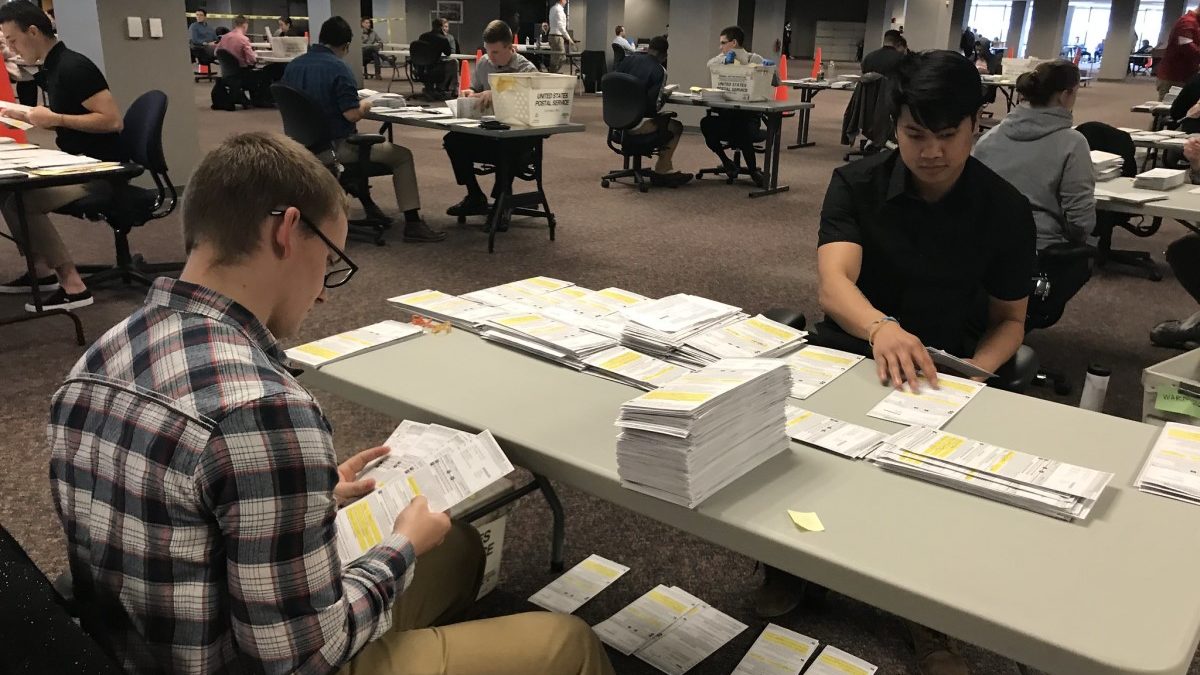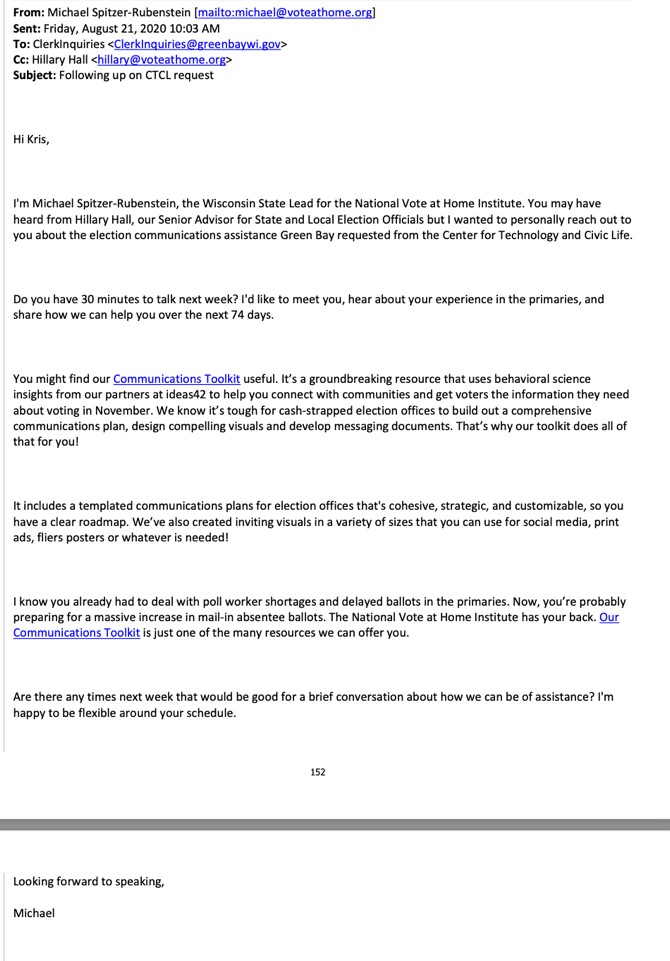Original article. Most Conservatives fight with truth and facts. Of course, that only works with people who care about such things and are willing to take the time to verify them. Here is how Demos roll. See how many times you find the terms “truth” and “facts” in this article.

‘Do not repeat myths as a way to refute them,’ the document says. ‘Instead, control the narrative.’
A left-leaning nonprofit instructed public officials how to “control the narrative” about mail-in ballots in the 2020 election.
The National Vote at Home Institute (NVAHI) guided officials to sway public opinion in favor of mail-in voting with their “2020 Election Official Communications Toolkit.” The group shared this document with public officials in Wisconsin while working with the Center for Tech and Civic Life (CTCL) to influence the 2020 election.
CTCL used nearly half a billion dollars from Facebook tycoon Mark Zuckerberg to fund private action within government election offices. They spent most of the money in Democrat-saturated districts, which boosted Joe Biden’s narrow presidential win in 2020. As a partner for the “Zuckbucks” recipient, NVAHI gave public officials advice on how to “control the narrative” about mail-in ballots.
“Do not repeat myths as a way to refute them,” the document says. “Instead, control the narrative by presenting information that affirms the safety, security, and reliability of mail balloting.”
Mail-in voting is not only proven to be more susceptible to voter fraud and errors than in-person voting, it is well known to favor Democrats over Republicans. It essentially functions as a get-out-the-vote operation on behalf of Democrats, whose voters are less motivated to show up at the polls on election day. Republican voters far prefer to vote in person, accurately believing it is more secure.
The group also told election officials to push mail-in voting by placing articles in media outlets: “Reporters will likely already be writing up voter information guides as well as shaping their articles around how well or poorly the election is running. A proactive op-ed strategy is helpful here,” the document says.
NVAHI explained that officials should target free, popular local news publications: “For all these types of outlets, approach them about whether they would run an article on your behalf about the upcoming election,” the document says.
The organization recommended officials use public information strategies such as “playing up the security” of mail-in voting. NVAHI told election officials to dissuade concerns about mail-in ballots by claiming that they contain “over a dozen security features.”
“Voters may be reluctant to fill out a mail ballot because of concerns they’ve heard about stolen or lost ballots. Assuage those concerns without leaning into them,” the document says.
The guide also tells public officials to “instill a sense of urgency” about mail-in voting, recommending an appeal to popularity: “Voters may be unsure whether voting by mail is right for them. Social proof (showing how many people are taking up a behavior) is a powerful way of making mail-in ballots a compelling option.”
The document also recommended that government election offices use particular slogans for public information campaigns, such as “Voting by mail is easy and secure,” and “Let’s all vote safely. Choose to vote by mail.”
NVAHI partnered with the organization Ideas42 to create this toolkit. According to its website, the group is “a non-profit that uses insights from behavioral science to improve lives, build better systems and policies, and drive social change.” Ideas42 works with CTCL partner Center for Civic Design, along with several offices of government secretaries of state.
After CTCL gave a grant of $1.6 million to the Wisconsin city of Green Bay in 2020, NVAHI gained access to absentee ballots and influence over election preparations in the area. NVAHI Wisconsin State Lead Michael Spitzer-Rubenstein emailed the elections guide to former Green Bay City Clerk Kris Teske in August 2020.

When reaching out to Teske, Spitzer-Rubenstein described the toolkit as “a groundbreaking resource that uses behavioral science insights from our partners at Ideas42 to help you connect with communities and get voters the information they need.”
Spitzer-Rubenstein, who worked for Democrat political campaigns in the past, emailed Teske to ask if his group could “cure” absentee ballots. This means altering absentee ballots after they are filed to allegedly fix errors, rather than counting improperly marked ballots as invalid. When Teske turned down the offer, Spitzer-Rubenstein emailed former Green Bay Mayor’s Office Chief of Staff Celestine Jeffreys, who ordered Teske to open the city elections’ ballot-curing process to NVAHI, a private special interest group.
A 2021 audit of Wisconsin elections found the state had counted enough illegal ballots in 2020 to potentially switch its Electoral College votes from Biden to Donald Trump. Vote curing in the election could have contributed to the state counting illegal votes, the audit found.
Also in 2021, a judge ruled that the state’s 2020 use of ballot dropboxes and ballot harvesting, both of which are only possible with mail-in ballots, was illegal. The majority of mail-in ballots in Wisconsin were votes for Biden, who won the state by a margin of 0.63 percent, or approximately 20,600 votes.
Before election day, Green Bay elections officials gave Spitzer-Rubenstein four out of five keys to the room in which the absentee ballots were stored, former Brown County Clerk Sandy Juno told Wisconsin Spotlight.
After the election, Juno expressed concerns that the Central Count location was “tainted by the influence of a person working for an outside organization influencing the election,” according to Wisconsin Spotlight. Teske said she felt that third-party groups such as CTCL and NVAHI excluded the clerk’s office from the election process.
“As you know, I am very frustrated, along with the Clerk’s Office. I don’t know what to do anymore,” she emailed a colleague. “I don’t understand how people who don’t have knowledge of the process can tell us how to manage the election.”
Logan Washburn is studying politics and journalism at Hillsdale College. He is a correspondent for Campus Reform and an outreach assistant for the Freedom Foundation.
** End **